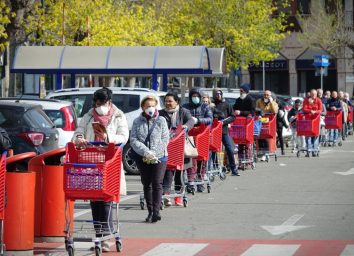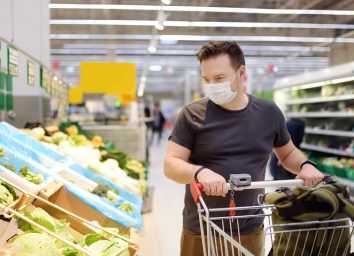10 Things You're Doing That Frustrate Grocery Store Workers
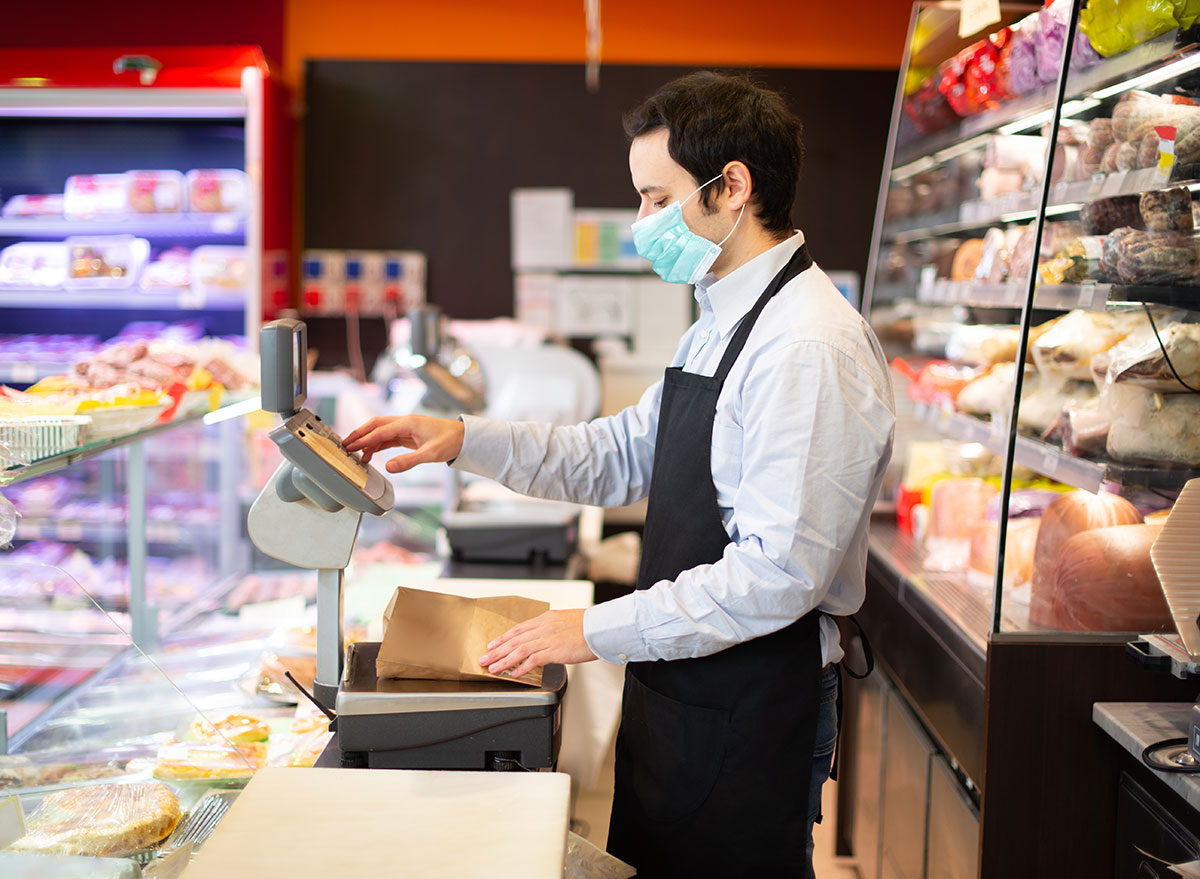
The world is living in unprecedented times, and as we all try to adjust to the quarantine life, one thing everyone has learned is the true value of grocery store employees. They have been working tirelessly to keep stores stocked and most importantly, safe. But there are plenty of ways you as the customer could be putting these grocery store workers in danger.
See, just as they're working hard to keep everyone who enters the store as safe as can be, those who are coming to buy food should be doing their part, too. Below, we break down all the ways you could be harming grocery store workers, so you know what not to do in order to best keep them safe during your next shopping trip. And for more tips, click here for all of our latest coronavirus coverage.
You're not wearing a mask and gloves.
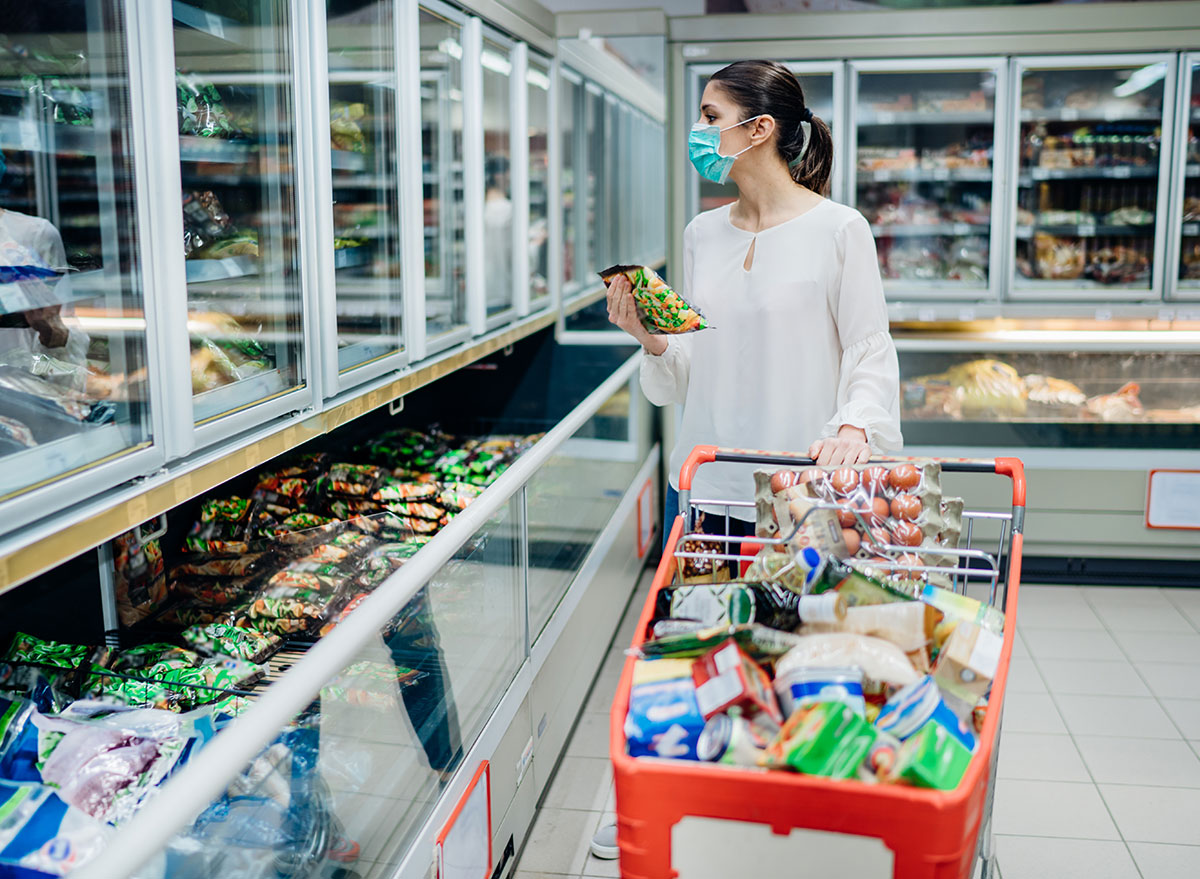
Although it might be a bit uncomfortable to walk around and shop with a mask and gloves on, it's a small price to pay for how crucial it is. It protects not only yourself but also others in the store. And think about how many people these store employees are seeing each day. So make sure you're wearing those masks and gloves.
You're not disposing of your protective gear properly.
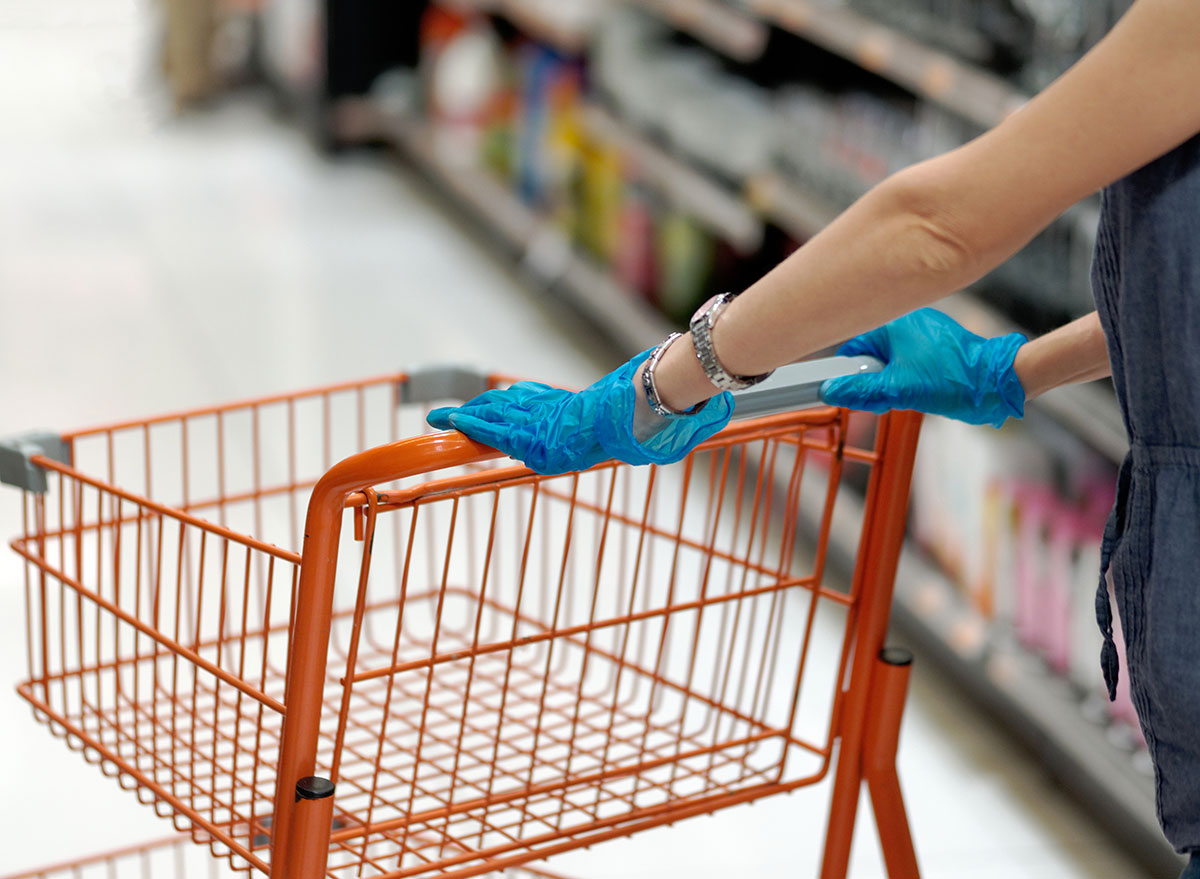
While it's of the utmost importance to wear protective gear when you're shopping, you want to make sure you're disposing of the masks and gloves the right way. Leaving them in a shopping cart or in the supermarket is NOT the thing to do, as it's the grocery workers who will have to discard these items. Again, that is unfairly exposing them to possible germs they otherwise would avoid. So remember to dispose of the gloves and masks you wear yourself.
You're not shopping with your eyes.
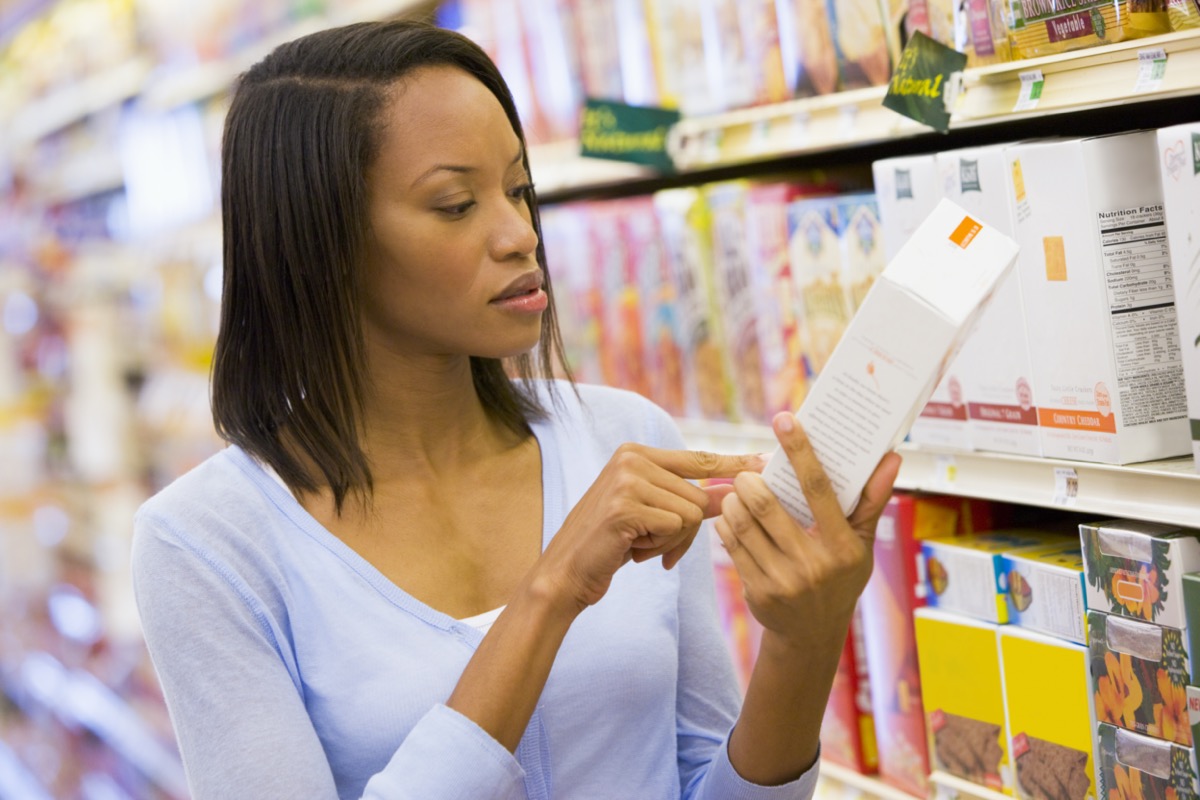
It's fairly common when you're food shopping to read the label of an item, and put it back on the shelf and grab something else instead. Or you want to take a look at all the avocados until you find one that looks best to you. While this might've been common practice a few months ago, now it's essential to shop with your eyes and not your hands. By touching multiple items, the workers who then have to re-stock shelves will end up touching these foods too, and that puts them at an even greater risk.
You're shopping too often.
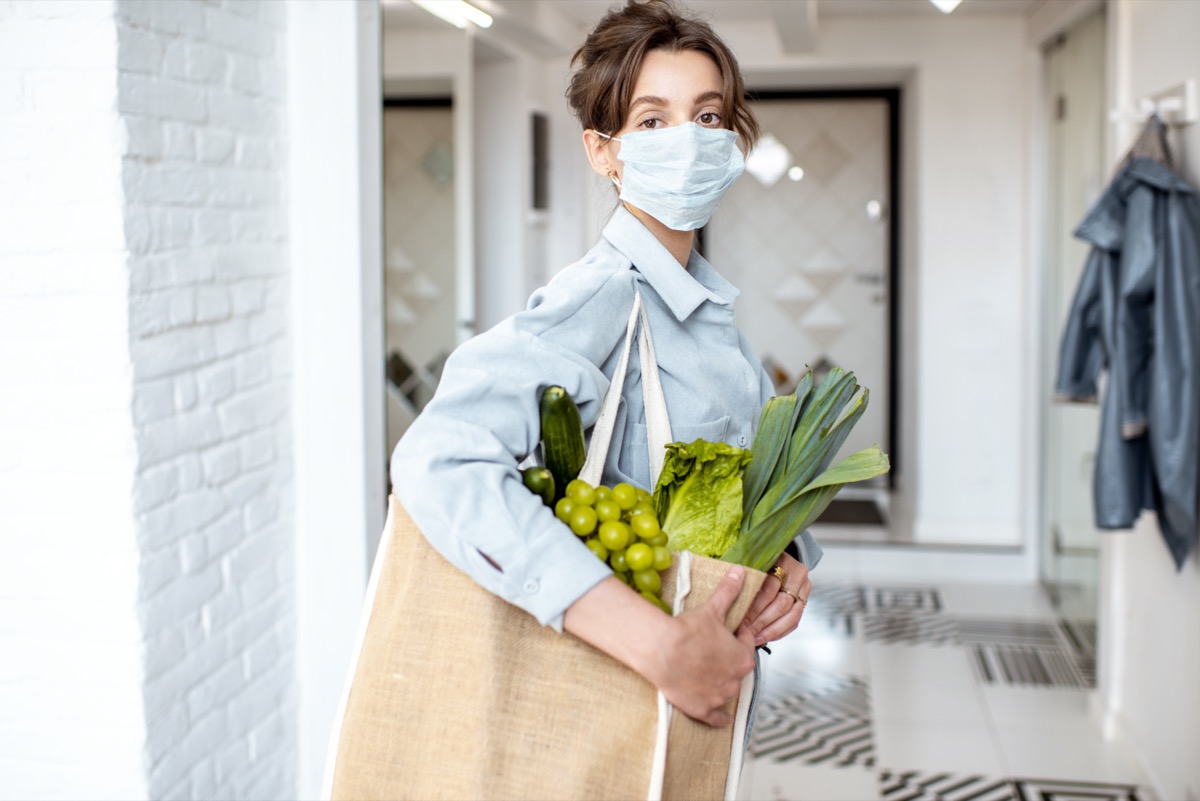
There are some people who are used to popping into the supermarket a few times a week, but this is one shopping behavior you're going to have to change for the time being. It's best to shop for two weeks' worth of groceries at a time so you're not heading out to the store that often. Coming back a few times a week, or worse, per day, to pick up items you've might've forgotten or you couldn't find during your first trip is a no-go. Grocery store workers are working long hours, and shoppers returning to the store over and over puts them at a major risk when everyone is supposed to be spending as much time at home as humanly possible.
You're not shopping alone.

Heading to the grocery store might've been a family affair but now, that is not ideal. It's best to leave any children at home and if you can, perhaps pick up items for the elderly folks in your life, too, so they don't have to venture out either. Shopping with a crew can lead to crowded aisles which makes it harder for store workers to restock and disinfect and makes it much more difficult to practice social distancing.
You're not coming prepared.
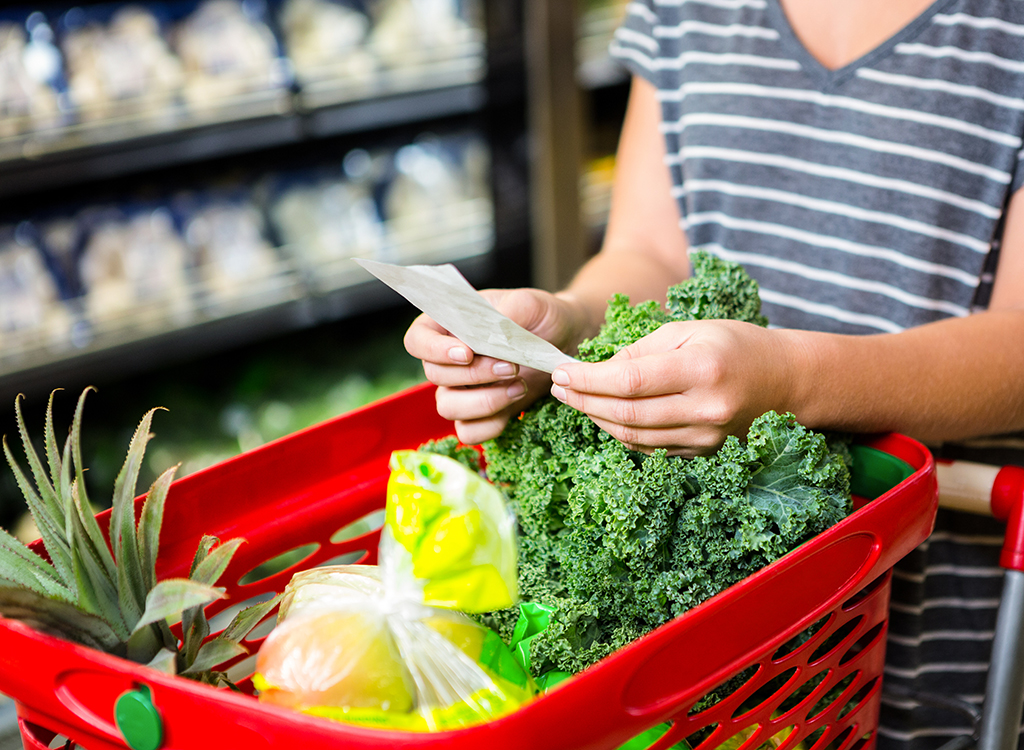
Spending time wandering down the aisles might've been a pastime before but now, it's best to get in and get out as quickly as you can. Most supermarkets are also limiting the number of people who are allowed in the store at one time, so it's best to come with a list in hand so you know exactly what you're looking for. The less time you spend in the store is better for everyone involved—other shoppers and of course, the workers.
You're not practicing social distancing.
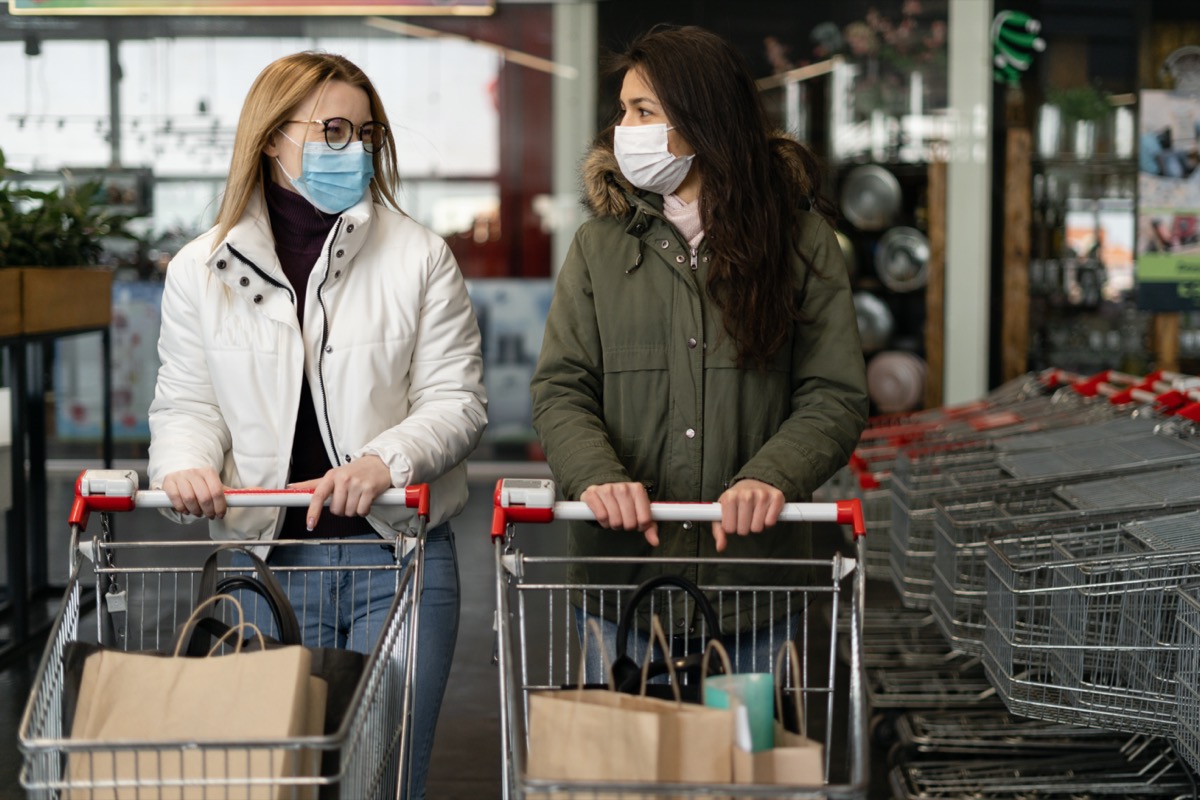
It's easy to want to chat with other customers and employees, especially if you can't find an item and want to ask a worker about it. But chatting about where to locate that chicken breast should be done from six feet away. And when you're standing in line, be sure to follow the six-feet apart rule as well, as this will avoid employees having to come up to you and actively enforce these rules.
You're paying with cash.
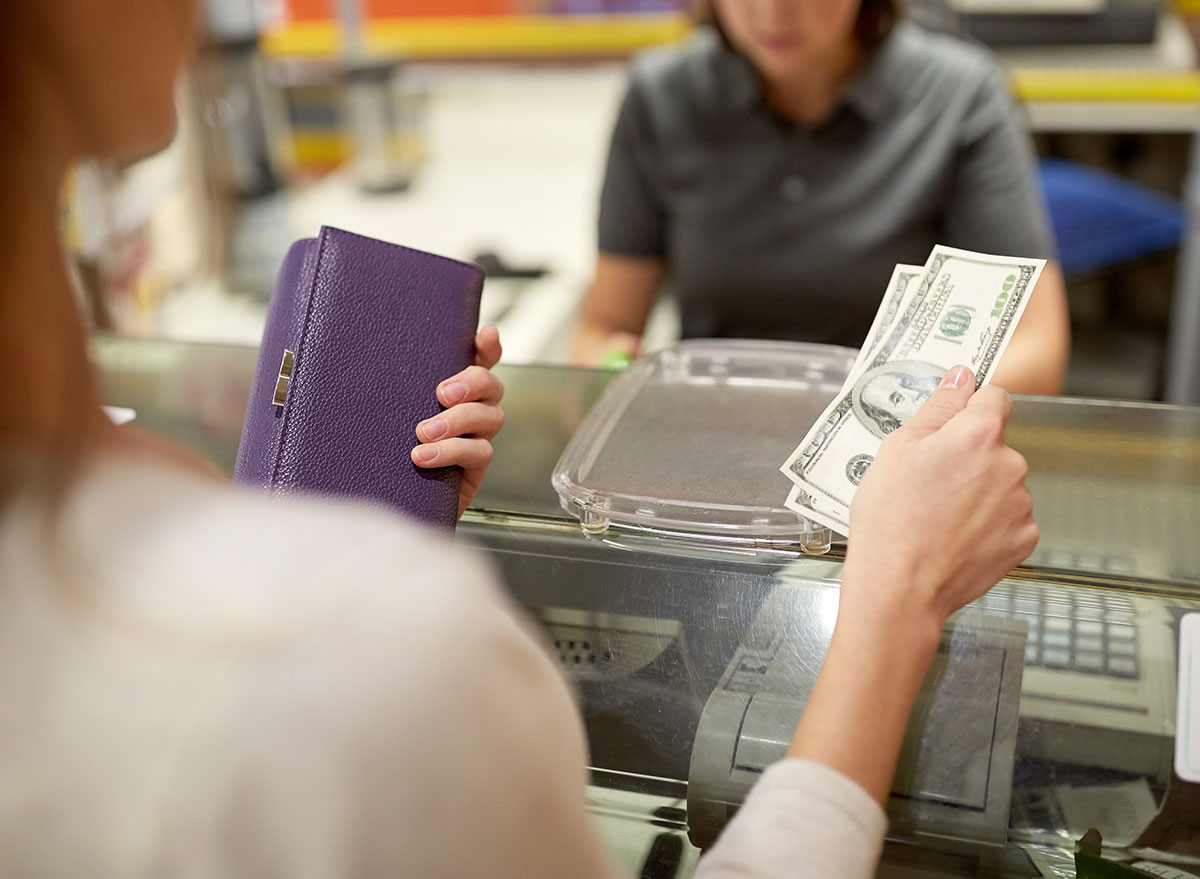
Even with gloves on, it's best to avoid paying with cash right now. Instead, use a credit or debit card and simply go cashless. This way, you don't have to hand anything to the cashier, limiting contact.
You're not bagging your own groceries.
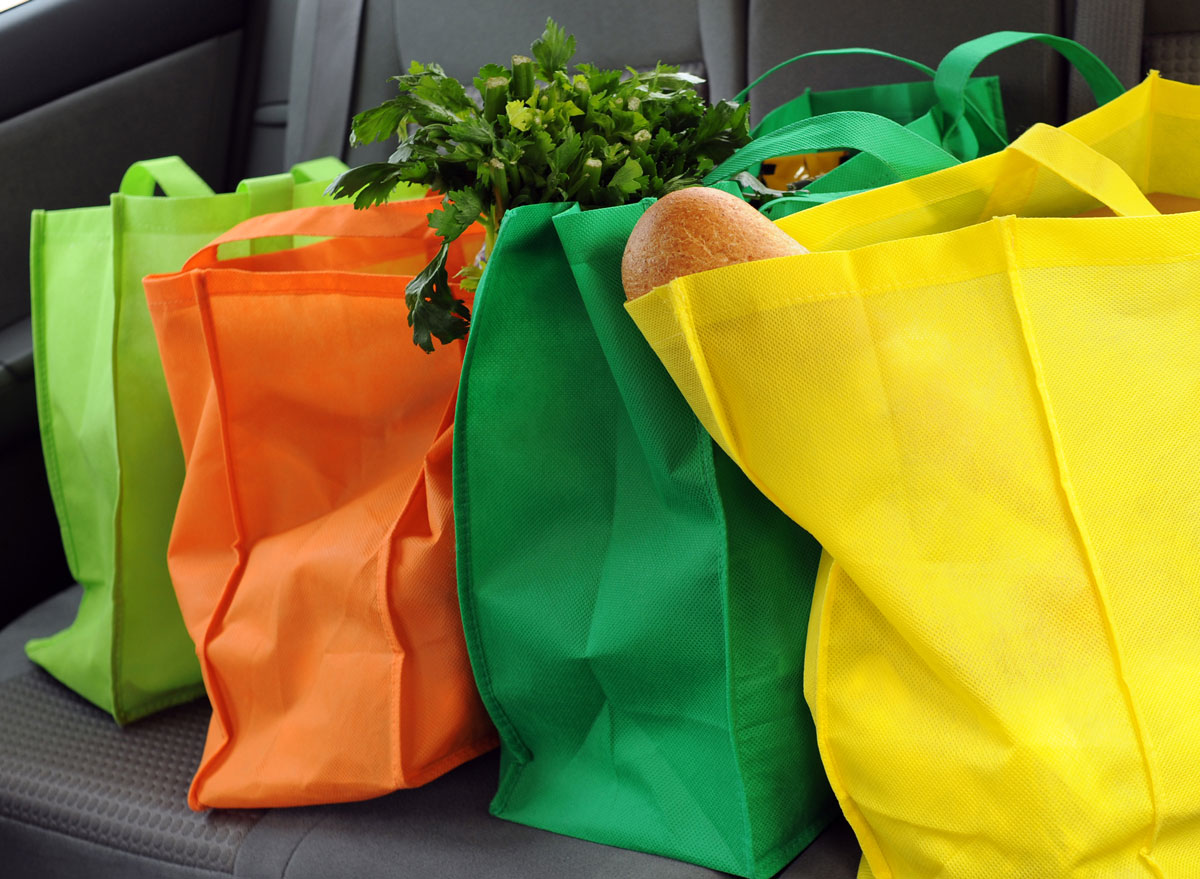
If you're coming to the store with your own reusable bags, you're most likely using these bags while you're shopping, too. And while the cashiers are ringing up your items, you can go ahead and place them in your bags. You already know how your items will fit best in your bags and this way, once the cashiers are done, you can just pay and head out.
You're not having patience.
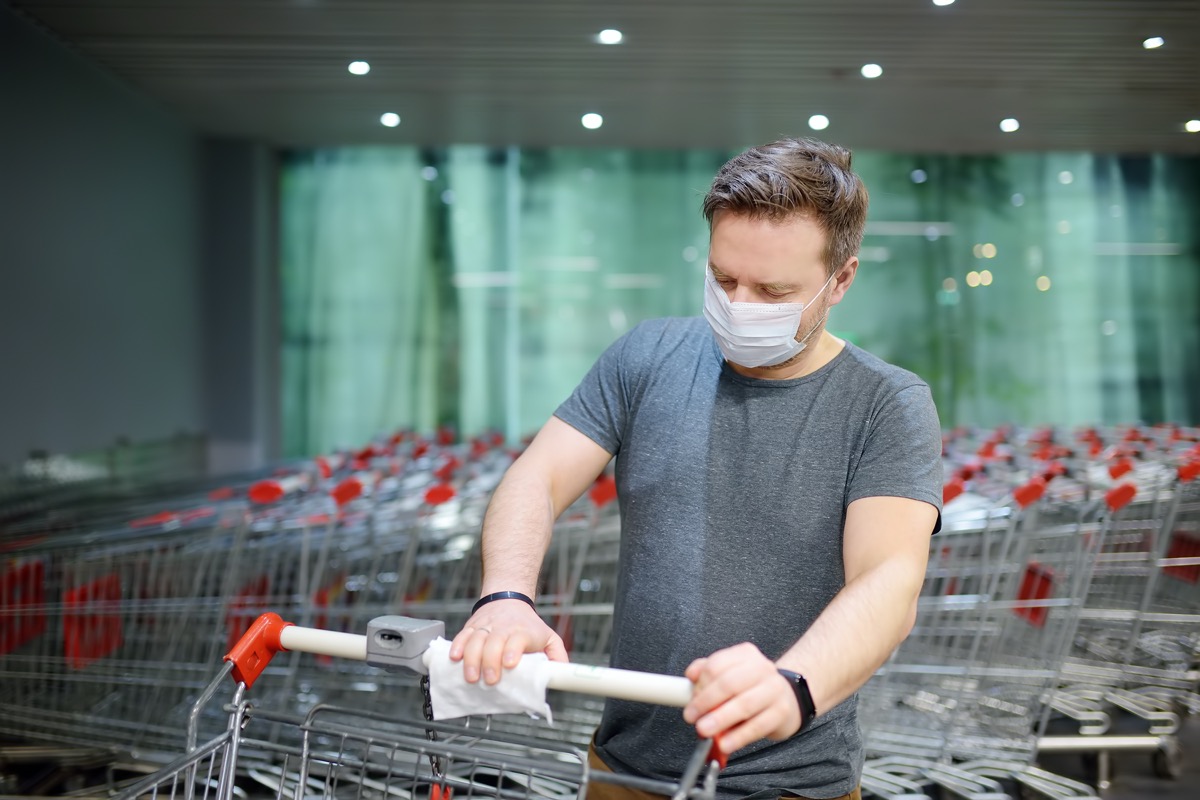
Everyone is feeling stressed right now, so it makes sense to be a little on edge. But if you happen to notice the spot on the store shelf where your go-to peanut butter is empty, and then demand an employee to let you know exactly when they'll be stocked up again isn't the best move. It's understandable to be frustrated, but just be sure you're not taking this out on the wrong people, as these grocery store workers are doing their best during these uncertain times. And approaching them while they're trying to work isn't necessarily the safest thing to do.
STAY INFORMED: Sign up for our newsletter to get the latest coronavirus foods news delivered straight to your inbox.
